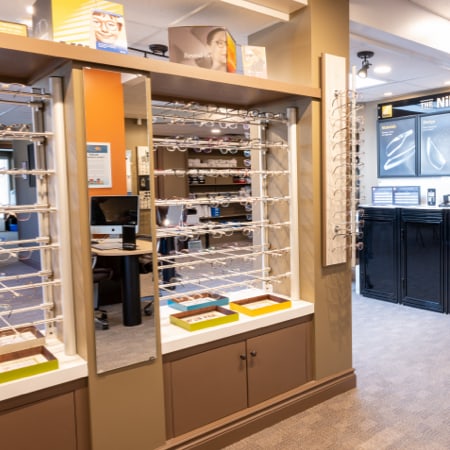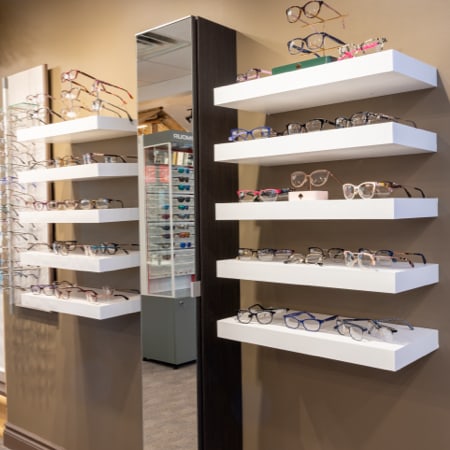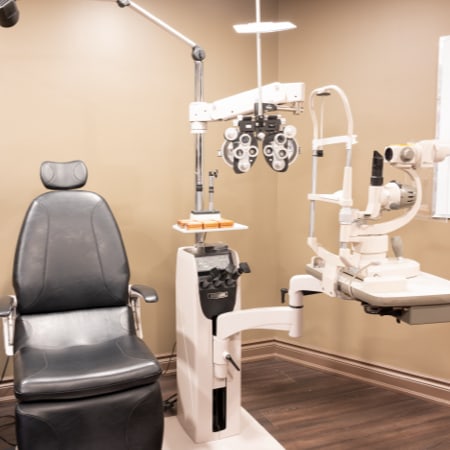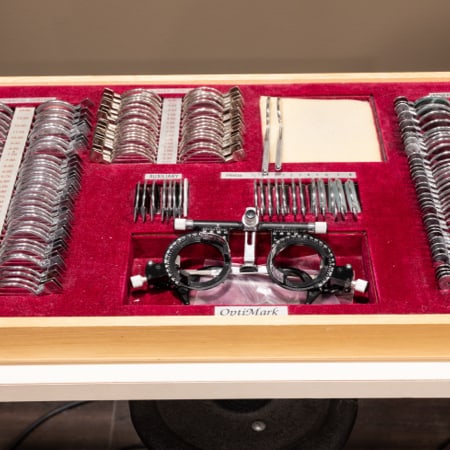What Is Age-Related Macular Degeneration?
Age-related macular degeneration (AMD) is a common condition that affects the central part of the retina and may lead to vision loss. It can impact your ability to read, drive, and recognize faces.
While AMD is related to age, other factors can contribute to macular degeneration. It’s important to exercise regularly, quit smoking, and avoid UV exposure by wearing hats and sunglasses. Additionally, you should get regular comprehensive eye exams so we can monitor your eye health for signs of AMD and other eye diseases.
Early detection and effective management can help preserve your vision. Schedule an appointment with us today.

Types of AMD
There are 2 types of AMD. Dry AMD is the most common type. It’s characterized by the gradual thinning of the macula over time. This condition can progress slowly, leading to a gradual loss of central vision.
The second is called wet AMD and is less common but can be more severe than dry AMD. When abnormal blood vessels grow under the retina, they can leak fluid or blood, which can cause rapid vision loss.


The Technology We Use to Diagnosis AMD
We use modern technology to help us diagnose age-related macular degeneration. If you’re experiencing symptoms of AMD, contact us. AMD often doesn’t have obvious early warning signs, but as it progresses, its symptoms may include:
- Blurred central vision while reading
- Poor night vision
- Wavy or distorted lines
- Dark spots in your vision
AdaptDX allows us to measure how quickly your eye recovers its sensitivity to darkness after exposure to bright light. If you have poor dark adaptation, you may have decreased macular function. This test can help us detect AMD before more serious symptoms develop, allowing us to intervene and recommend early treatment options.
MP-eye is a diagnostic tool that performs a macular pigment assessment, helping us evaluate your natural defences against macular damage. Low pigment density can increase the risk of developing macular degeneration. Based on your results, we may recommend dietary changes and supplements to help protect your eyes.
Optical coherence tomography (OCT) is an imaging technology that takes highly detailed images of your macula and retina. OCTs are similar to an ultrasound, but instead of using sound, OCTs use light to generate cross-sectional images of your retina.
This 3D image of your retina allows us to explore if your retinal layers are distorted and check for eye diseases like macular degeneration and diabetic retinopathy.
Schedule a Visit Today
Early detection and proactive management are important to combating macular degeneration. Protect your vision and maintain your quality of life by scheduling an appointment today.
Explore Our Brands





More of Our Services
Explore even more of the services we provide at Orillia Optometry.
AMD Centre of Excellence
Our AMD clinic takes advantage of modern technology and our experience to assist with patient education and managing age-related macular degeneration. We are proud to be an AMD Centre of Excellence through continued efforts of managing and understanding AMD.
Vision Therapy
Vision therapy isn’t just about improving your vision. It’s a personalized training program that can address underlying problems that contribute to eye strain, headaches, and even difficulties with focusing and reading.
Laser Eye Surgery Consultation
Our team is by your side throughout the laser eye surgery process. Whether you’re considering LASIK or PRK, we can help determine if you’re a good candidate for laser eye surgery. We also schedule follow-up appointments post-surgery to monitor your recovery.
Google Reviews
Take a look at what our patients have to say
about their Orillia Optometry experience.
Come Visit Us
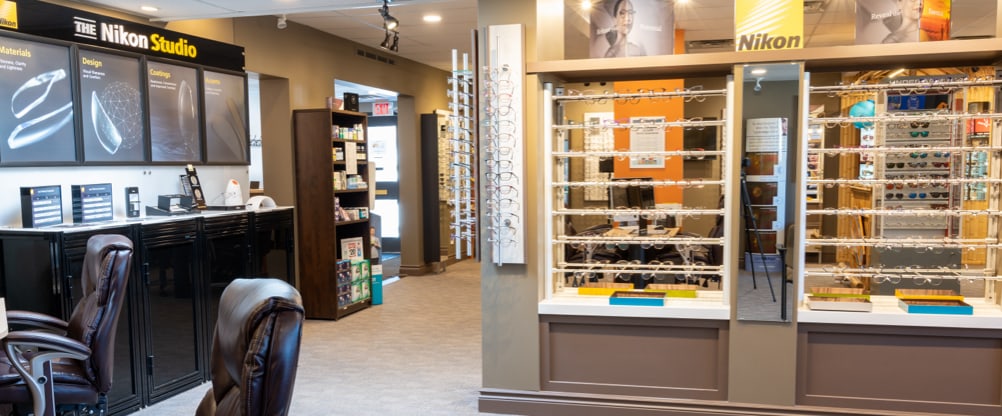
We are located across from the Couchiching Golf & Country Club in beautiful Orillia. There’s plenty of parking available outside the clinic.
Our Address
- 390 Laclie Street
- Orillia, ON L3V 4P5
Contact Information
- Phone: 705-326-3121
- Email: info@orilliaoptometry.com
Our Hours

Clinic of Doctors Vision Group
About Us
Eye Exams
Specialty Eye Care
Brands
Follow Us
- 390 Laclie Street
- Orillia, ON L3V 4P5
- Phone: 705-326-3121
- Email: info@orilliaoptometry.com


